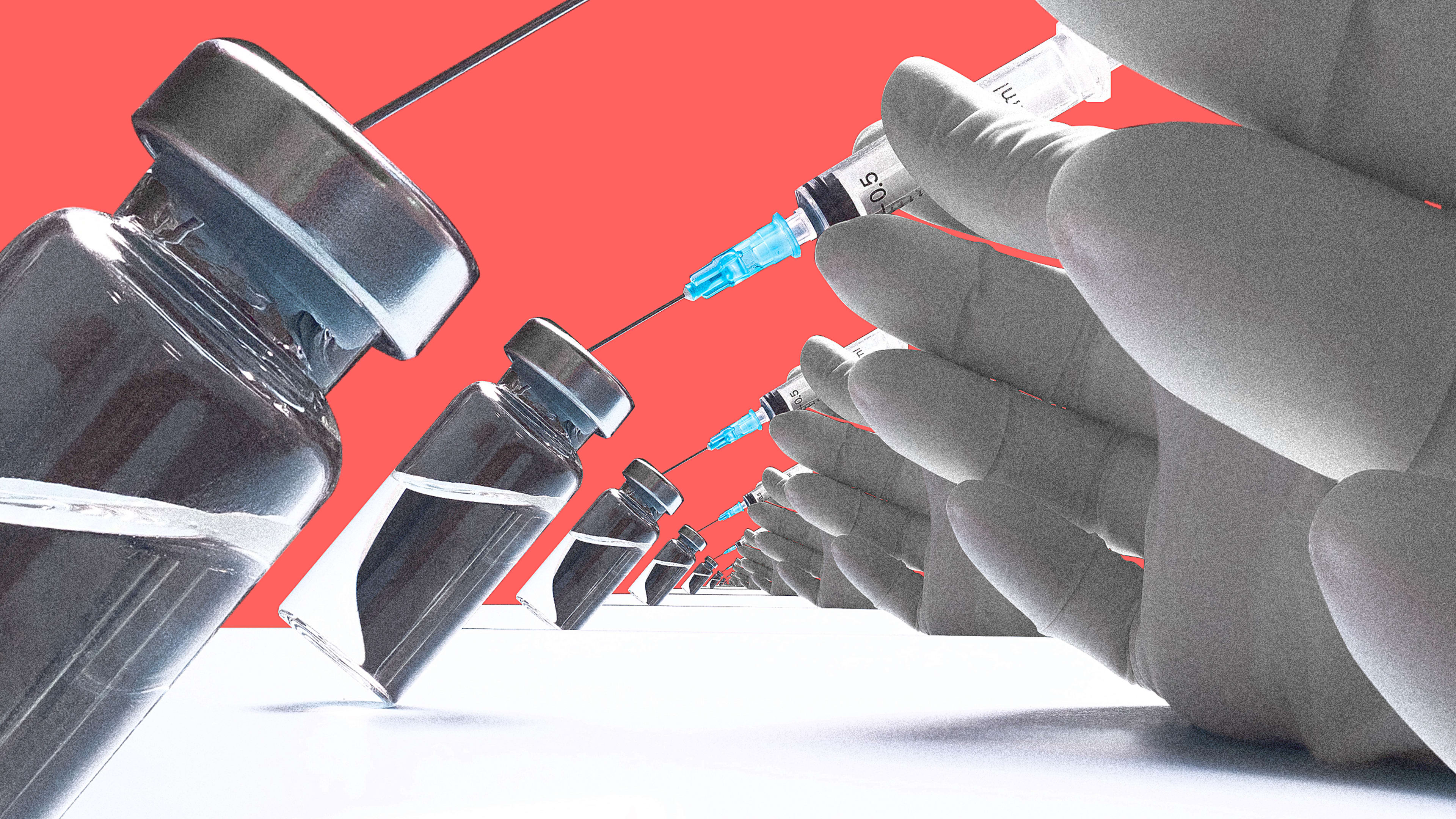As vaccine manufacturing picks up speed, the U.S. could end up with an extra 450 million doses more than needed to vaccinate every American—at the same time that some developing countries still have few doses or none at all. The U.K. and Canada could have another 200 million extra doses. Hundreds of millions more will likely be available in the European Union.
“Before the vaccines were developed, wealthier countries were hedging their bets and securing the rights to purchase doses before they even knew what doses would be available,” says Tom Hart, executive director for North America at the nonprofit One. “But now that there are vaccines that are approved and in production and moving out, what was then hedging is now just hoarding.”
The nonprofit looked at the three vaccines that have been approved so far in the U.S., in addition to two others that are likely to also soon have U.S. approval, and calculated that more than 1.2 billion doses will be available in a handful of wealthy countries and the E.U., based on the orders those governments placed. In another new analysis, the International Rescue Committee calculated that excess doses from vaccines now approved in the U.S., U.K., and E.U could vaccine everyone over the age of 16 in all of the countries it considers most at risk of a major new or worsening humanitarian crisis, including Syria, Ethiopia, and the Democratic Republic of Congo.
Right now, of course, those extra doses are just theoretical, they still haven’t been manufactured. In the U.S., people have received roughly 60 million shots as of March 9, and only around 32 million Americans had been fully vaccinated (about 10% of the total population). But hundreds of millions of doses—more than the U.S. needs—will soon be ready. Hart argues that now is the time to plan how to distribute them.
Biden has said that it will be possible to vaccinate every American by the end of May. Some people will refuse the vaccine, leaving even more doses available. But even if the U.S. can reach the goal of herd immunity locally, we won’t be fully protected if the virus is still spreading elsewhere. “It’s not just as a matter of ethics, but as a matter of self-interest,” says Hart. “Variants from South Africa, Brazil, and the U.K. made their way over to the United States in a matter of weeks. How long will it be before a variant that evades our current vaccines reaches our shores? The idea that no one is safe until everyone is safe is not just a platitude. It actually is true in the case of viruses that easily traveled around the world in a matter of weeks.”
If rich countries monopolize vaccine doses, there could be twice as many deaths than if doses are equitably distributed, the report from One says. It could cost the global economy as much as $9.2 trillion. The organization recommends that rich countries donate their extra doses to Covax, an initiative that was formed to help lower-income countries compete for vaccine doses and to distribute doses globally. The initiative started rolling out the Astrazeneca vaccine in Ghana in late February, and has shipped more than 17 million doses globally so far. It aims to deliver enough vaccine for poor countries to initially vaccinate 3% of their populations. But with extra doses from countries like the U.S., it could go far further.
In February, UN Secretary-General Antonio Guterres called vaccine equity the “biggest moral test before the global community.” China and Russia have already started sending doses of vaccines developed domestically to other countries, using the vaccines as a form of diplomacy. Norway has committed to giving away extra doses. In the U.K., Boris Johnson has suggested that he will give away extra doses when all adults in the U.K. have been vaccinated, but also said that it was difficult to say when that would happen. Leaders from Canada and the E.U. have said the same thing. “We’re seeing positive signals from Emmanuel Macron in France, and to some extent, Angela Merkel in Germany,” Hart says. “The Biden administration has not made clear what their plan will be to deal with excess doses.”
It’s critical, he emphasizes again, that rich countries make clear plans to share those extra doses now, rather waiting for the moment that the doses are sitting on shelves. And it’s critical that they get to the right places. “It’s in everyone’s interest to assure a more equitable distribution of vaccine,” he says.
Recognize your brand’s excellence by applying to this year’s Brands That Matter Awards before the early-rate deadline, May 3.
